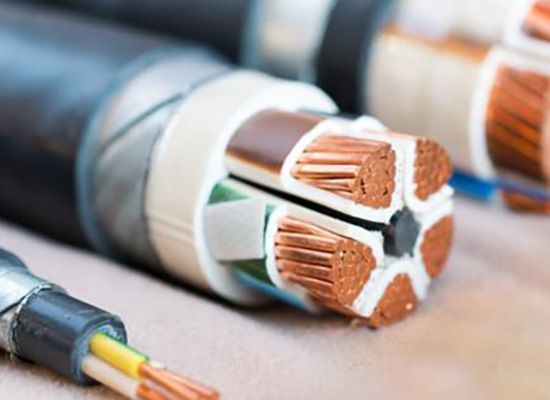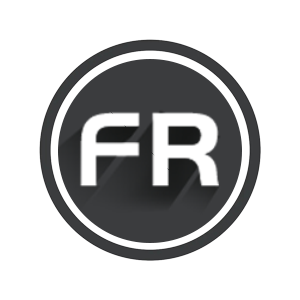1. Single-Core Cable Sheath End Grounding Method, Why Must Be Installed Along The Cable Laid In Parallel With The Return Line?
In the metal sheath end of the grounded cable line, ensure that the induced voltage in the sheath does not exceed the allowable standard.
Must be installed along the cable line parallel laying of a conductor, and the two ends of the conductor grounded, this conductor is called the return line.
When a single-phase ground fault occurs, the grounding short-circuits current can flow back to the center of the system through the return line.
As the grounding current through the return line generated by the magnetic flux offset a portion of the magnetic flux generated by the cable conductor grounding current, thus reducing the induced voltage of the sheath when the short-circuit fault.

2. Cable Works Can Be Divided Into Several Projects?
(1) Site transportation: including the loading and unloading of engineering materials from the warehouse to the construction site, szállítás, and empty backhaul.
(2) Local works: including road excavation, tunnel and trench construction, stb.
(3)Laying works: including laying, intermediate head making, lifting the cover, buried pipe, school tide, traction head making, stb.
(4) Both ends of the project: support, suspension bridge, and its foundation production and installation, terminal head production, oil pressure, and signal device installation, the name species electrical performance testing, stb.
(5) Plugging engineering: including the production of an oil-filled cable plugging head, the installation of an oil supply tank, automatic drainage and signaling device, stb.
(6) grounding engineering: including insulation joints, transposition boxes, protectors, grounding box installation, stb.
3. What Checks Should Be Carried Out For The Acceptance Of Cable Lines?
(1) Cable specifications should be by the provisions, the arrangement should be neat, with no damage, and complete, correct, and clear labeling.
(2) The fixed bending radius of the cable, the distance concerned and the wiring of the metal sheath of the single-core power cable should meet the requirements.
(3) Cable termination, the intermediate head does not leak oil, firmly installed, oil-filled cable oil pressure and meter calibration value should meet the requirements.
(4) Good grounding.
(5) The cable terminal phase color is correct, and the metal parts of the bracket are painted intact.
(6) cable trench and tunnel, the bridge should be free of debris, and the cover plate is complete.
4. What Are The Requirements Of The Cable Line Positive Sequence Impedance Measurement Process?
A AC resistance of the cable conductor and the phase sum of the three identical inductances of the cable is called positive sequence impedance.
The positive sequence impedance of the cable line can generally be measured directly on the cable tray, and a lower voltage is generally used for the measurement.
Therefore, a step-down transformer is required to step down the voltage, the step-down transformer uses star wiring, and the capacity is generally 10kVA or more.
There is a wide range of voltage regulations, measurement of the AC power supply should be relatively stable to ensure that the measurement of the current meets the specified requirements.
The actual voltage meter reading value must be the voltage at the end of the cable, the test current is good close to the long-term allowable cable current, measuring and reading the value of each meter, close the current while reading the value of the three tables.
5. According To The “Electrical Production Safety Regulations”, The Electrical Staff Must Have The Conditions Of What?
Must have the following conditions.
(1) identified by a doctor’s physical health, no medical conditions that prevent work.
(2) have the necessary electrical knowledge, according to the nature of their duties, and work to master the relevant regulations, professional techniques, and safety operation techniques, and passed the examination.
(3) skilled in first aid methods for electrocution.
6. What Should Be Noted In The Process Of Transport Loading And Unloading Of Cables?
(1) in the transport loading and unloading process, should not make the cable and cable tray damaged, it is strictly prohibited to push the cable tray directly from the car, the cable like should not be flat transport or flat storage.
(2) before transporting or rolling the cable tray, must ensure that the cable tray is solid, cable winding tight, oil-filled cable to the pressure tank between the oil pipe should be fixed, shall not be damaged, the pressure tank should be solid, the pressure indication should meet the requirements.
7. What Are The Measures For Cable Fire Prevention?
(1) The use of fire-retardant cables.
(2)Adopt a fireproof cable bracket.
(3) The use of fire-resistant coatings.
(4) cable tunnel, mezzanine exit, stb. set fire partition wall, fire baffle.
(5) overhead cables should avoid oil pipelines, and explosion-proof doors, otherwise there should be to take localized piping or insulation fire prevention measures.


